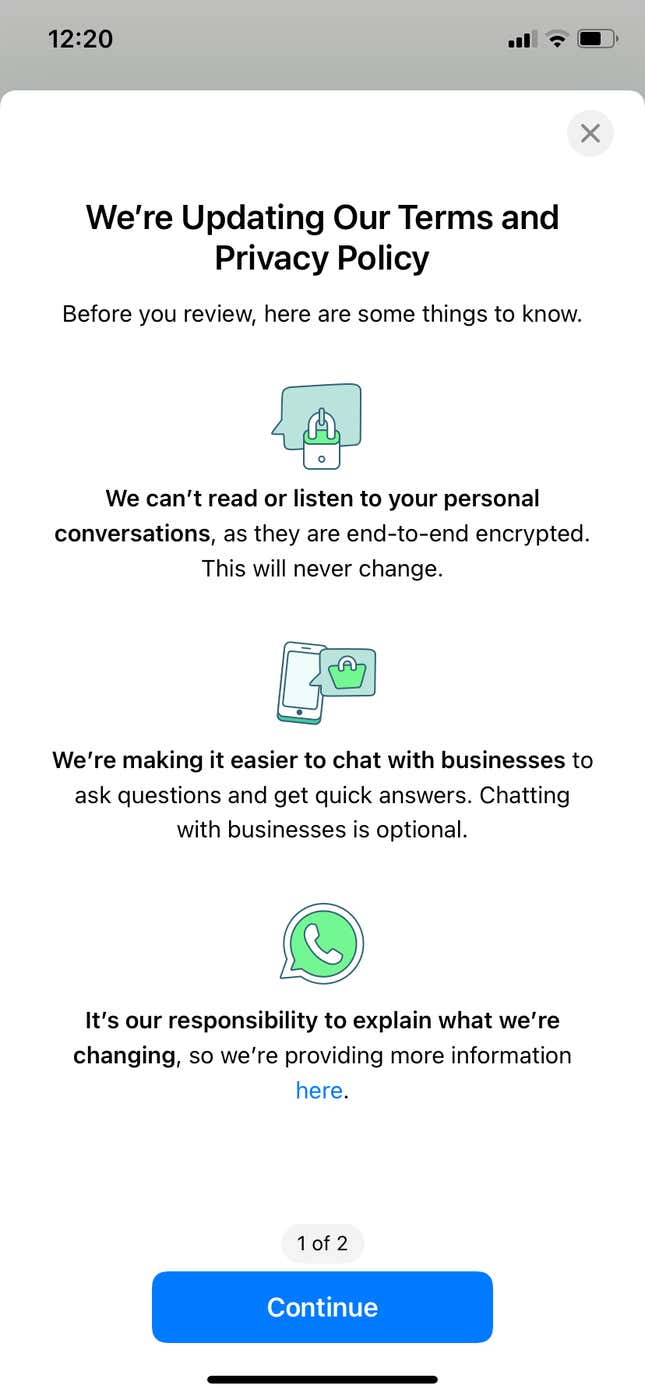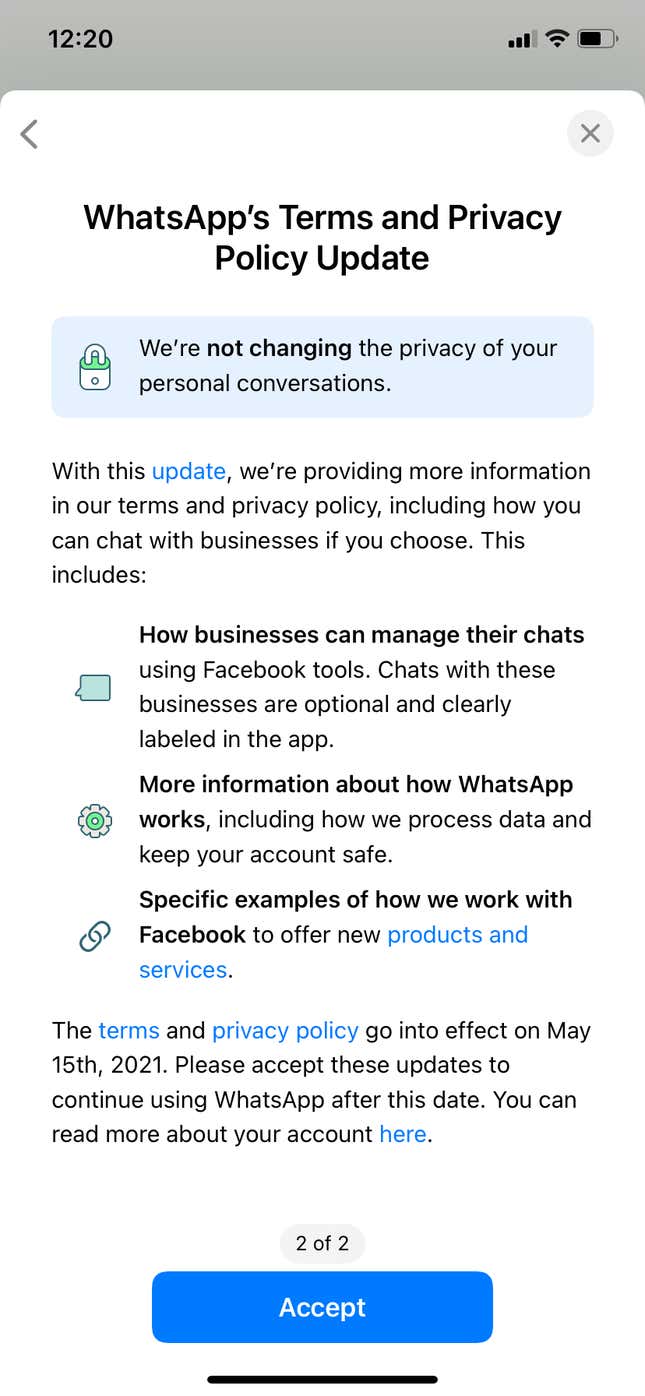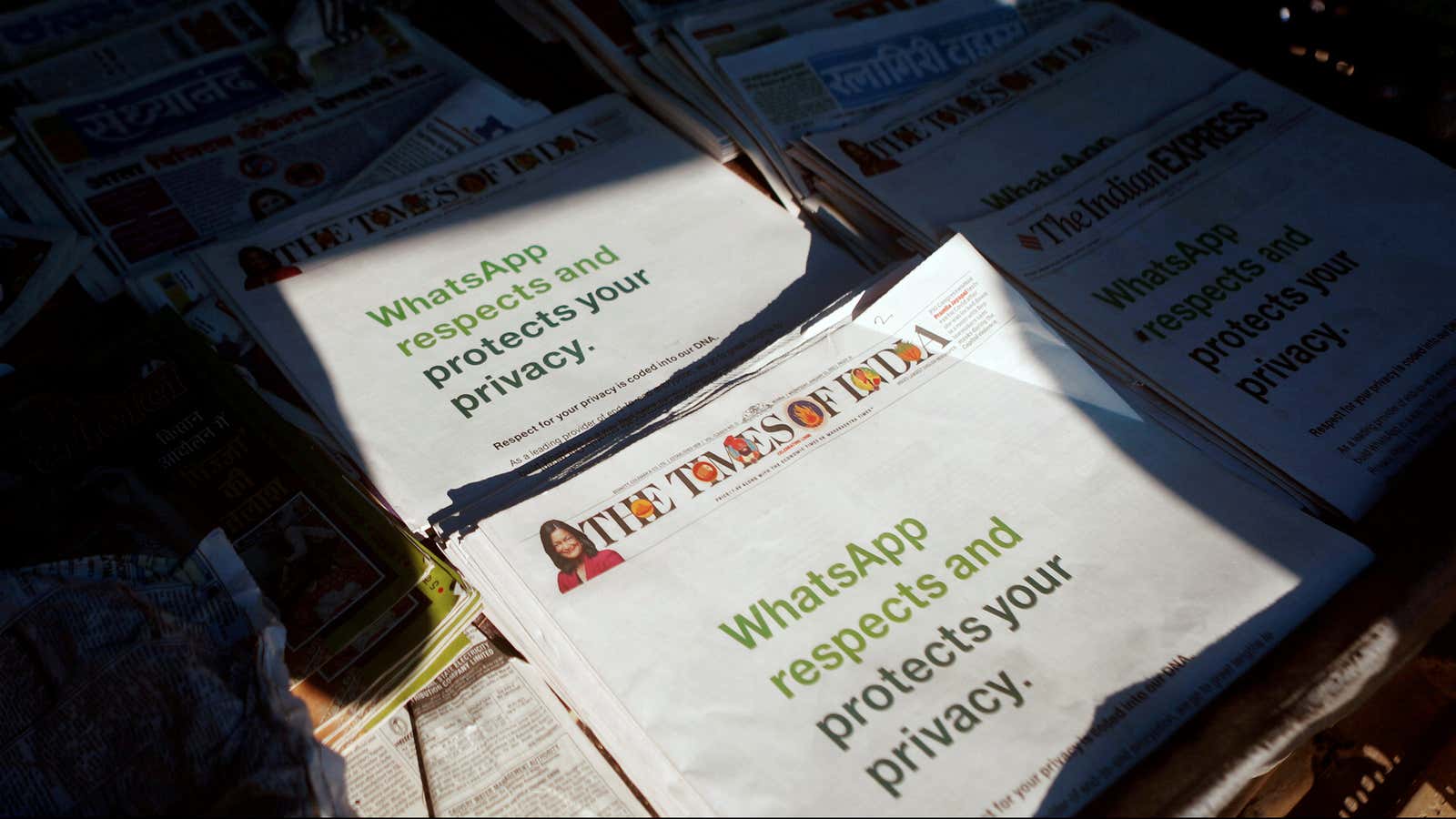Even as public sentiment turns against WhatsApp in India, it won’t retract its controversial privacy policy.
On Jan. 4, the messaging app introduced new policy terms that would increase data sharing with its parent company Facebook. The move triggered fears of personal chats being compromised and following mounting pressure from Indians—who make for WhatsApp’s largest user base in the world—the company gave users in the country an extension until May 15 to implement the policy changes.
In the meantime, however, the company is trying several tricks to make its case to users.
Its latest attempt is a banner message for users who have not yet accepted the terms saying, “we can’t read or listen to your personal messages, they are end-to-end encrypted. This will never change.” It gives clarity on the rules only applying to business chats, and emphasises that “chats with businesses are optional.”


However, the choice is almost farcical. The only option WhatsApp gives its users is to “accept” these “updates.”
Those who do not accept will be able to receive calls and notifications but will not be able to send messages via WhatsApp. And after 120 days, their “inactive” account will be automatically deleted.
Realistically, people need to either accept the new policy or download their chats and migrate to another app.
WhatsApp’s last-ditch too little too late?
The latest in-app message comes after WhatsApp has tried to allay fears by putting out an explainer using the WhatsApp Status feature as well as printing ads in national newspapers. And it’s reportedly mounting bigger campaigns for the larger public and the government, too.
The messaging giant has been reiterating that private messages are still secure. The new terms only pertain to business messaging, whose data it’ll share with parent Facebook and sister-companies like Instagram. This affects communication with 19 million business accounts—a sliver of the 530 million WhatsApp users in India.
Unfortunately for WhatsApp, the initial hullabaloo already spread great distrust. India’s Supreme Court is not happy with the company’s stance, and its future in India is inching closer to a ban.
Like WhatsApp co-founder Brian Acton—who’s now the executive chairman of non-profit Signal Foundation which created WhatsApp’s less intrusive rival Signal—told TechCrunch in a January interview, “the smallest of events helped trigger the largest of outcomes.”
